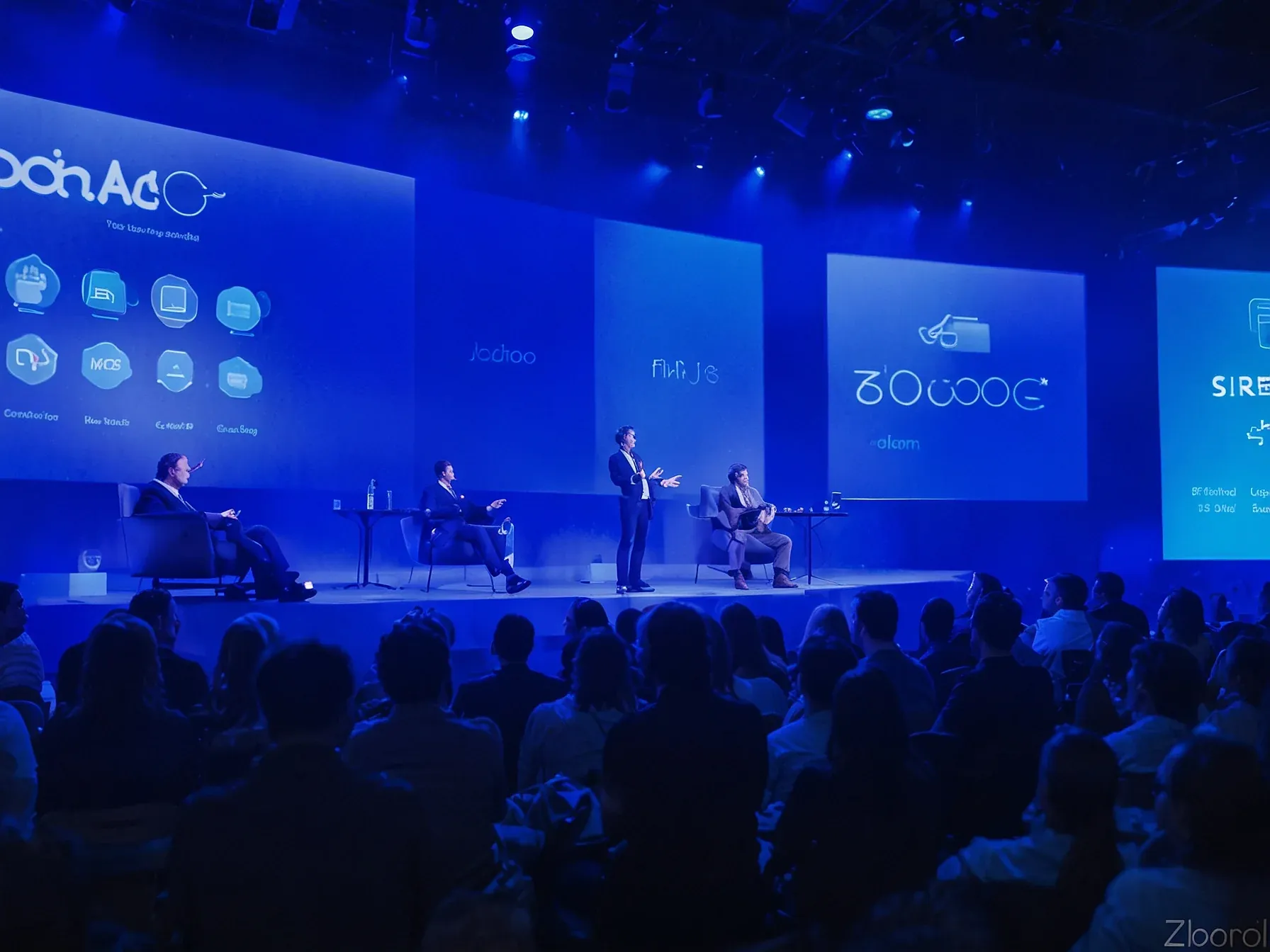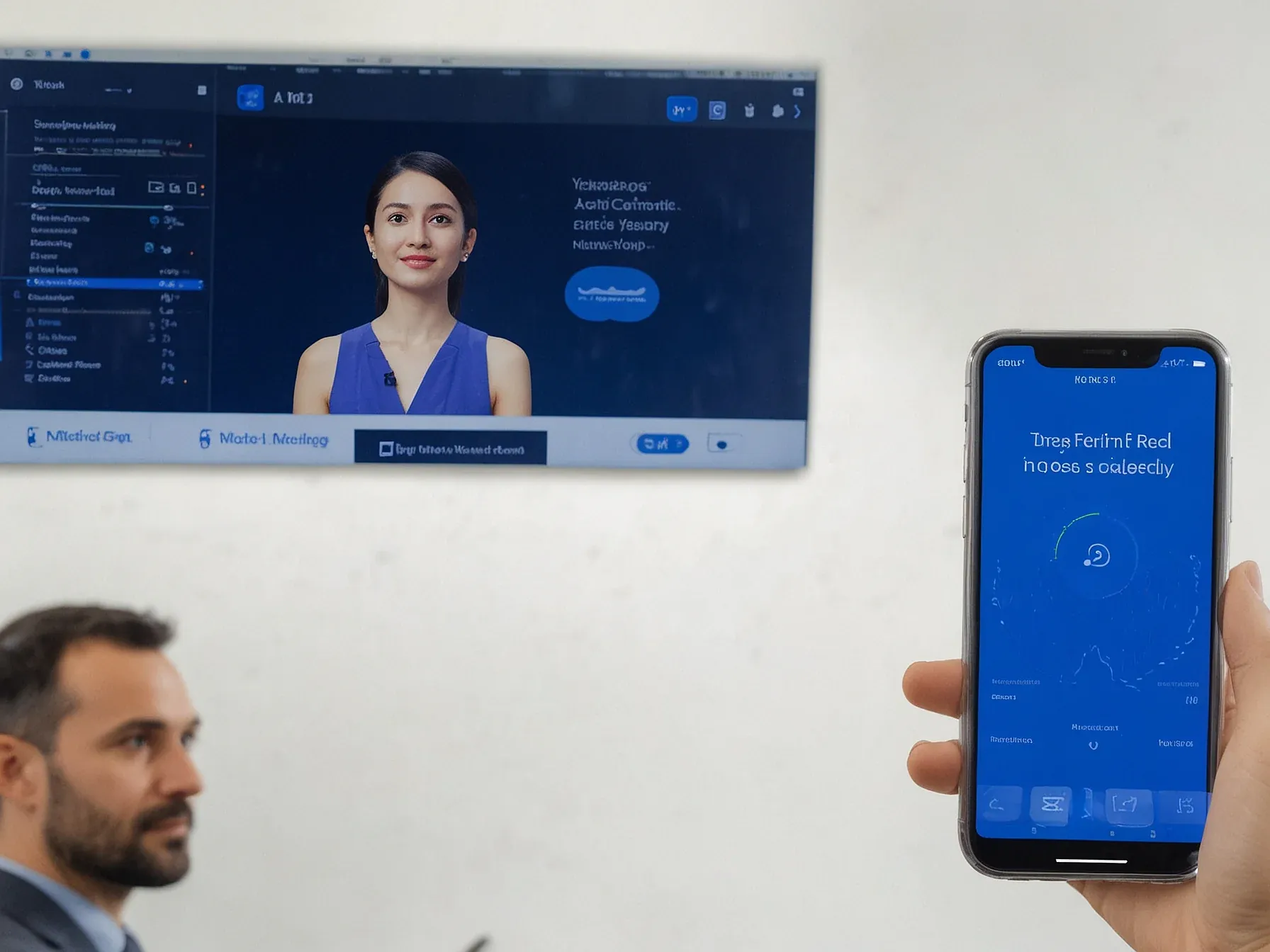
Editorial illustration for Zoho Introduces Agentic AI Features Across 55+ Business Applications
Zoho Embeds Agentic AI Across 55+ Business Apps
Zoho adds agentic AI features across its 55-plus business apps
The AI arms race is heating up in enterprise software, with Zoho making a bold move to embed intelligent automation across its entire business application suite. The company's latest update introduces "agentic" AI capabilities that promise to transform how businesses interact with their core productivity tools.
Zoho's approach goes beyond simple chatbot interactions or basic automation. Its AI system, called Zia, is designed to work smoothly across multiple applications, from customer relationship management to financial systems.
This isn't just another incremental upgrade. By integrating AI deeply into 55+ business applications, Zoho is signaling a fundamental shift in how workplace software might operate in the near future.
The goal? To create a more simple, responsive digital workspace where AI can proactively assist users across different business functions. Small and mid-sized companies, in particular, could see significant productivity gains from this type of integrated intelligence.
Together, these additions extend Zoho's AI strategy by making agentic capabilities directly accessible across its ecosystem of over 55 business applications, according to the company. Because Zoho runs a tightly integrated product portfolio, Zia can act across apps (CRM, finance, workplace) with shared context, a practical operational advantage for customers who want AI to operate cross-product rather than as an isolated feature. Canva Canva is going AI-native by embedding intelligence across every step of the design journey, with over 13 billion AI feature uses. Its strategy blends in-house models, partnerships with leaders like OpenAI and RunwayML and a growing developer ecosystem, enhancing creativity while keeping human-led design at the centre.
Zoho's latest move signals a strategic shift in business software. The company's AI assistant, Zia, now operates across 55+ applications with unusual interconnectivity.
What makes this approach intriguing is the cross-product context. Zia can smoothly move between CRM, finance, and workplace tools, breaking traditional software silos.
This isn't just another AI feature. It's a fundamentally different approach to how business intelligence might work inside integrated software ecosystems.
The tight integration could be a real advantage for companies tired of fragmented AI experiences. Zoho seems to understand that AI's true power emerges when it can understand broader operational contexts.
Still, questions remain about how precisely Zia will perform across such diverse applications. The promise is compelling, but practical execution will determine real-world utility.
For now, Zoho appears to be positioning itself as a more holistic AI-powered business platform. Small and mid-sized businesses might find this unified approach particularly attractive.
Common Questions Answered
How does Zoho's Zia AI differ from traditional business software AI assistants?
Unlike typical AI features that operate in isolation, Zoho's Zia is designed to work seamlessly across 55+ business applications with shared context. This cross-product approach allows Zia to operate intelligently between CRM, finance, and workplace tools, breaking down traditional software silos and providing more integrated business intelligence.
What makes Zoho's agentic AI capabilities unique in the enterprise software market?
Zoho's agentic AI goes beyond simple chatbot interactions or basic automation by enabling intelligent, context-aware operations across multiple business applications. The system can smoothly transfer and utilize information between different software tools, creating a more interconnected and intelligent business software ecosystem.
In which specific business applications is Zoho implementing its new AI features?
Zoho is introducing agentic AI capabilities across its entire suite of over 55 business applications, including CRM, finance, and workplace tools. This comprehensive approach allows the AI assistant Zia to provide intelligent, context-aware support across different business functions and software platforms.




